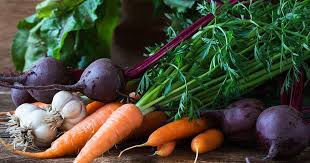
Organic vegetable gardening is a rewarding way to grow your own fresh produce while promoting environmental sustainability. By utilizing natural methods such as composting, crop rotation, and companion planting, you can cultivate a vibrant garden that thrives without synthetic pesticides or fertilizers. This approach not only enhances soil health but also fosters biodiversity, attracting beneficial insects that help control pests. Whether you have a small balcony or a spacious backyard, organic gardening allows you to enjoy the satisfaction of harvesting your own vegetables while contributing to a healthier ecosystem. Embrace the process, experiment with different varieties, and watch your garden flourish!

Organic vegetable gardening is more than just a method of growing food; it’s a holistic approach that emphasizes sustainability, health, and a deep connection to nature. At its core, organic vegetable gardening seeks to cultivate crops without the use of synthetic fertilizers, pesticides, or genetically modified organisms. Instead, it harnesses natural processes and materials to create a thriving garden ecosystem. This method of gardening not only yields delicious and nutritious vegetables but also contributes positively to the environment by promoting biodiversity and improving soil health.
Organic vegetable gardening is a sustainable and rewarding practice that focuses on growing vegetables without synthetic fertilizers, pesticides, or genetically modified organisms, making it an excellent choice for health-conscious individuals and environmentally aware gardeners. By embracing organic vegetable gardening, you not only cultivate fresh produce free from harmful chemicals but also contribute to a healthier ecosystem. The principles of organic vegetable gardening emphasize soil health, biodiversity, and ecological balance, which are essential for producing nutrient-rich vegetables.
For instance, planting marigolds alongside tomatoes can help repel harmful nematodes, while basil can improve the flavor and growth of nearby crops. Water management is also critical in organic vegetable gardening; using techniques like drip irrigation can conserve water while ensuring that plants receive the moisture they need without the risk of overwatering, which can lead to root rot. Furthermore, organic vegetable gardening often encourages the use of natural pest management strategies. Instead of relying on chemical pesticides, organic gardeners might introduce beneficial insects like ladybugs and lacewings, which prey on aphids and other harmful pests. Traps, barriers, and organic-approved sprays can also be employed to protect crops while maintaining an ecological balance.
The commitment to organic vegetable gardening extends beyond cultivation; it also encompasses the selection of heirloom and organic seed varieties that are adapted to local growing conditions and resistant to diseases. These seeds not only contribute to biodiversity but also preserve traditional agricultural practices. Furthermore, organic vegetable gardening promotes seasonal eating, as gardeners typically grow vegetables that are in season, leading to fresher and tastier produce. This approach not only supports local ecosystems but also reduces the carbon footprint associated with transporting food over long distances. Community involvement is another benefit of organic vegetable gardening, as it often encourages sharing knowledge, seeds, and produce among neighbors and local groups.
Engaging in organic vegetable gardening not only yields delicious and nutritious vegetables but also cultivates a deep connection to the land and a greater appreciation for the environment. The process encourages mindfulness and patience, as gardeners learn to observe the rhythms of nature and adapt their practices accordingly. Whether you’re growing vibrant heirloom tomatoes, crisp lettuce, or fragrant herbs, organic vegetable gardening offers a fulfilling way to connect with the earth and enjoy the fruits of your labor.
Ultimately, the benefits of organic vegetable gardening extend beyond personal health and enjoyment; they contribute to a larger movement toward sustainability and environmental stewardship. By choosing organic practices, you actively participate in preserving the planet for future generations, fostering biodiversity, and promoting healthier ecosystems. In essence, organic vegetable gardening is not just about cultivating food; it is a holistic approach that nurtures the soil, supports biodiversity, and enhances community resilience, making it a vital practice in today’s world.









